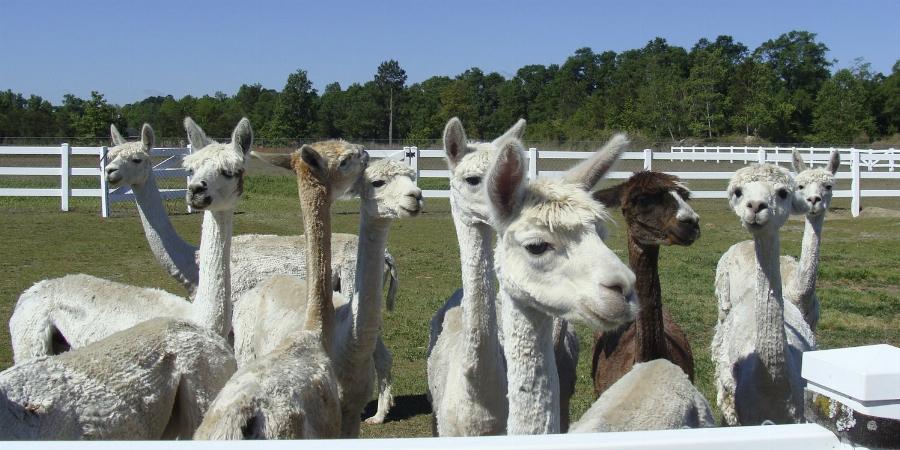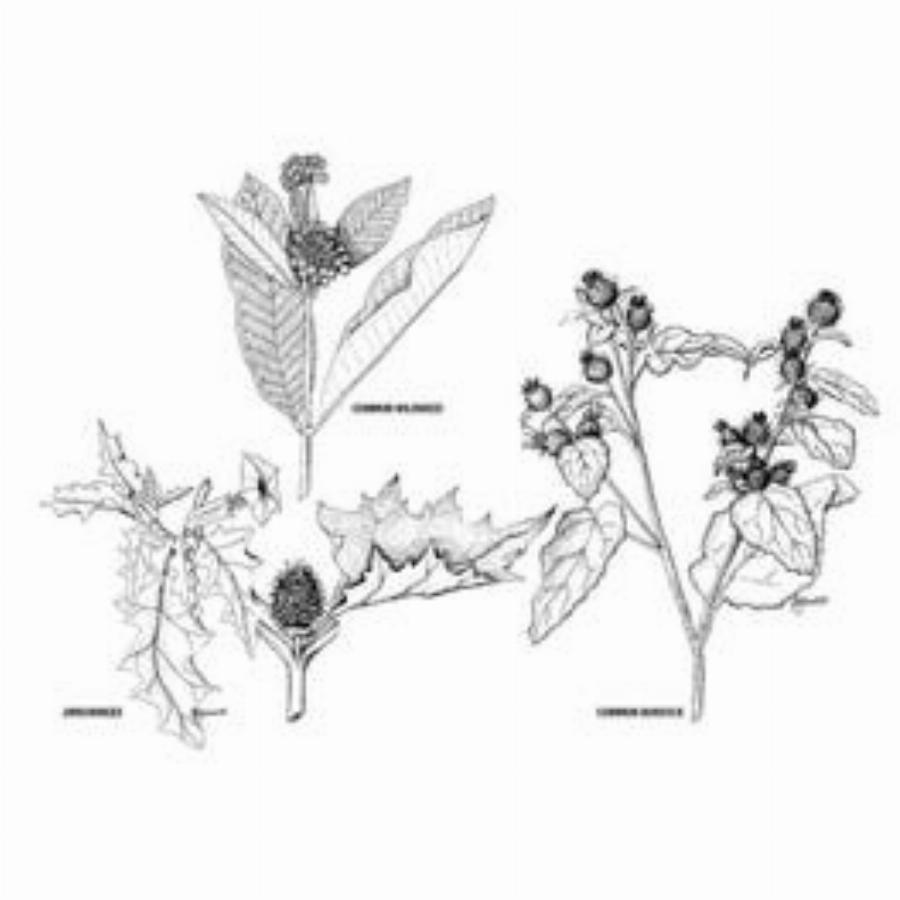Nội dung bài viết
- Origin and Significance of Alpacas
- Types of Alpacas and Their Characteristics
- Alpaca Care and Husbandry: What to Feed Your Alpaca
- Can Alpacas Safely Consume Weeds?
- Which Weeds are Safe and Which are Poisonous?
- The Alpaca Industry and Its Products
- Interesting Facts and Myths about Alpacas
- Why Do Alpacas Eat Weeds?
- How Can I Manage Weeds in My Alpaca Pasture?
- What Should I Do If My Alpaca Eats a Poisonous Weed?
- How Do I Introduce New Plants or Weeds to My Alpacas’ Diet?
- Frequently Asked Questions
- Conclusion
Can Alpacas Eat Weeds? It’s a question many alpaca owners and enthusiasts ponder. While these adorable camelids are known for their gentle nature and luxurious fleece, their dietary habits can be a bit of a mystery. So, let’s dive deep into the world of alpaca grazing and discover the truth about weeds and their role in an alpaca’s diet.
Origin and Significance of Alpacas
Alpacas, originating from the Andes Mountains of South America, have been domesticated for thousands of years. Their significance lies primarily in their soft, hypoallergenic fleece, which is prized for its warmth and durability. But beyond their economic importance, alpacas are fascinating creatures with unique dietary needs.
Types of Alpacas and Their Characteristics
There are two main types of alpacas: Suri and Huacaya. Suri alpacas are known for their long, silky, dreadlock-like fleece, while Huacaya alpacas have a denser, crimped fleece. While their fleece differs significantly, both types share similar dietary preferences. Both are herbivores, primarily grazing on grasses and hay.
Alpaca Care and Husbandry: What to Feed Your Alpaca
Caring for alpacas involves understanding their specific dietary requirements. Providing them with a balanced diet is crucial for their health and well-being. While good quality hay should form the foundation of their diet, many wonder about supplementing with other forages, including those pesky weeds.
Can Alpacas Safely Consume Weeds?
So, can alpacas eat weeds? The answer is, it’s complicated. While alpacas can consume some weeds, not all weeds are safe for them. Some weeds can even be toxic. It’s crucial to identify which weeds are growing in your pasture to ensure your alpacas’ safety.
Which Weeds are Safe and Which are Poisonous?
Knowing which weeds are safe for alpaca consumption is essential. Dandelions, for instance, are generally safe and even enjoyed by alpacas. However, plants like nightshade and hemlock are highly toxic and should be eradicated from pastures. Consulting with a veterinarian or experienced alpaca farmer about local poisonous plants is highly recommended.
The Alpaca Industry and Its Products
The alpaca industry thrives on the production of luxurious fiber. From soft sweaters and warm blankets to durable socks and stylish accessories, alpaca fleece is transformed into a wide array of products. Understanding their diet helps ensure healthy animals and, in turn, high-quality fiber.
Interesting Facts and Myths about Alpacas
Alpacas are fascinating creatures. Contrary to popular belief, alpacas don’t spit at humans out of aggression. They typically reserve this behavior for communicating with each other within the herd. Another interesting fact: they are incredibly social animals and thrive in herd environments.
 Suri and Huacaya Alpacas Grazing Together
Suri and Huacaya Alpacas Grazing Together
Why Do Alpacas Eat Weeds?
Alpacas, like other grazers, have evolved to consume a variety of plants. Weeds often provide essential nutrients and can add diversity to their diet. However, it’s essential to monitor the types of weeds available to ensure they are not consuming anything harmful.
How Can I Manage Weeds in My Alpaca Pasture?
Managing weeds in an alpaca pasture requires a proactive approach. Regular mowing, selective herbicide application, and rotational grazing can help control weed populations and ensure a safe grazing environment for your alpacas.
 Effective Weed Management in Alpaca Pastures
Effective Weed Management in Alpaca Pastures
What Should I Do If My Alpaca Eats a Poisonous Weed?
If you suspect your alpaca has ingested a poisonous plant, contact your veterinarian immediately. Early intervention is crucial for successful treatment. Observe your alpaca for any signs of distress, such as lethargy, loss of appetite, or unusual behavior.
How Do I Introduce New Plants or Weeds to My Alpacas’ Diet?
Introducing new plants or even safe weeds should be done gradually. Start by offering small amounts and observe your alpacas for any adverse reactions. This allows their digestive system to adjust and minimizes the risk of digestive upset.
Frequently Asked Questions
Q: Are all weeds bad for alpacas?
A: No, not all weeds are harmful. Some weeds can provide valuable nutrients. However, many weeds are toxic to alpacas, so identification and management are essential.
Q: What are some common toxic weeds for alpacas?
A: Nightshade, hemlock, and bracken fern are examples of highly toxic weeds for alpacas. It’s crucial to consult with a veterinarian for a comprehensive list of toxic plants in your area.
Q: How can I prevent my alpacas from eating weeds?
A: Completely preventing alpaca from eating any weeds is difficult. Focus on good pasture management to minimize the growth of harmful weeds and ensure a healthy grazing environment.
Q: Can alpacas eat weeds along with their regular hay?
A: Yes, as long as the weeds are safe. However, good quality hay should still constitute the majority of their diet. Weeds should be considered a supplementary forage, not a primary food source.
Q: What are the signs of alpaca poisoning?
A: Signs of poisoning can vary depending on the plant ingested but may include lethargy, loss of appetite, tremors, or digestive upset. Contact your veterinarian immediately if you suspect poisoning.
Conclusion
Can alpacas eat weeds? While they can nibble on some, careful management of your pasture is essential. By understanding the different types of weeds, both beneficial and harmful, you can ensure your alpacas’ health and happiness. Remember, a well-informed alpaca owner is a key to a thriving herd and the continued enjoyment of these amazing animals and their luxurious fiber. So, keep learning, keep exploring, and keep loving those alpacas!